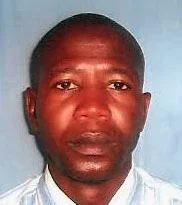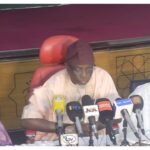Afolabi Gambari
It is a contemporary history of only 32 years Past, and it happened here in Nigeria.
General Ibrahim Badamasi Babangida, then Nigeria’s military president who had ruled since August 27, 1985, was supposed to hand over to a civilian government after a failed promise to do so three years earlier. The entire nation was expectant – many were either fed up with the military in power or just wanted to witness a new dawn of democracy after the previous experience was terminated by the military on December 31, 1983.
An election that would usher in the new democratic order had been scheduled for June 12, 1993. Registration of voters had been carried out by the National Electoral Commission (NEC). The voters were looking forward to the D-day, with many already knowing their choice candidate between the two contenders – Chief Moshood Abiola (of the Social Democratic Party) and Alhaji Bashir Tofa (of the National Republican Convention), who had exerted energy and resources in touring the country,y wooing the voters.
There was a hidden agenda, although not exactly clear to many. Not even to those who could be regarded as the most observant or discerning. Nonetheless, there was a hidden agenda in every material particular.
A shadowy group by the name Association for Better Nigeria (ABN), founded by millionaire Francis Arthur Nzeribe, had earlier gone to court to seek an injunction restraining the NEC from conducting the election. The military government itself had decreed much earlier that no order by any court of law could pre-empt the election or interfere with its conduct in any way. But on June 7, a Lagos High Court, Justice Bassey Ikpeme presides, after listening to the petition by the ABN, acted swiftly by summoning the NEC chairman, Prof. Humphrey Nwosu, attorney-general and justice minister, Clement Akpamgbo, and President Babangida to appear before her within one week to show cause why the election should not be stopped. It has to be said that Justice Ikpeme had, at the time, barely served five months on the bench. Although the election was already scheduled for June 12, as aforementioned, Justice Ikpeme still delivered her ruling at 9 pm on June 10, only 48 hours before the poll. She said the election must not be held. But, having been aware of the decree that stated that no order by any court of law could stop the election, she also said the NEC was free to ignore her order. Strange! And the NEC ignored the ruling.
Justice Ikpeme’s ruling however threw the nation into uncertainty: will the election be held on June 12 or not?
By mid-day on June 11, the United States Information Service (USIS), based in Lagos, broke the suspense by issuing a statement saying “any postponement of the election will not be acceptable to the US government”. The statement apparently unsettled the military government, which had curiously remained silent all through the legal proceedings that threatened the restoration of democracy in the country. The silence turned out as the motivation that Nigerians needed to troop to the polling stations on June 12 to cast their votes. The election was held, and it would turn out to be described by local and international observers as free, fair and credible. Of course, there were a few hitches, but they were not what should be expected even in the best-organised elections.
Late on June 13, news had filtered in that Abiola, the SDP candidate, was cruising to a massive victory. By mid-day on June 14, the NEC, already being commended highly at home and abroad for “a job well done”, had authenticated the returns from the majority of the states and moved to name the chief returning officer who would announce the winner of the election. Tofa, Abiola’s opponent, had prepared to concede defeat, to be followed by a firm pledge to work with the winner.
But a curious, if not bizarre, turn of events emerged on June 15 as the NRC, whose presidential candidate, Tofa, held on June 13 prepared to concede defeat, alleged “irregularities” in the poll. Among the alleged infringements are Abiola’s wearing of a green dress embroidered with a horse, the SDP symbol, to the polling booth on election day, which the NRC said should attract a huge fine or a two-year jail term or both. Suddenly, too, and without offering any reason, the NEC stopped the announcement of the results after another High Court in Abuja, the federal capital, Chief Judge Dahiru Saleh presiding, granted a petition by the ABN to suspend further action on the election results.
By June 17, a Lagos High Court, Justice Moshood Olugbani presides, acting on a petition by two independent applicants, ordered the NEC to produce the results of the June 12 election within 24 hours by all means and at all costs. It was a case of one court ordering the NEC to “stop counting” and another court ordering the electoral umpire to “continue to count”. No confusion could be greater than this. Yet, it had not ended there.
Meanwhile, Babangida, who had at one time declared that he was not only in office but was also in power, had not said a word. Indeed, the presidency literally went on holiday. The silence was palpable, safe for the chief press secretary, Chief Duro Onabule, who insisted in a statement that the military government had “not in any way interfered with the job of NEC”.
Tension filled the air. So were fear and anger across the country. The question kept reverberating: why would a journey that took eight years be aborted in this way after lots of money, time, and other resources went into it? Yet, the answer would not come.
One thing led to another, bringing so much suspense and even tension. But something must give, and it gave! By June 26, Babangida made a nationwide broadcast in which he conceded that the June 12 election was free, fair and credible, but contradicted himself by still saying it was fraught by widespread irregularities. He annulled the results and said a new election would be organised at a date he could not immediately schedule. The setback that the annulment visited on Nigeria is still being felt after 32 years, as evident in the economic and social dislocation in Nigeria, bordering on widespread disunity and distrust among the people. However, this piece is not intended to dwell on this particular effect.
On February 20, 2025, Babangida released his long-awaited memoir in which he admitted that Abiola had won the June 12, 1993, election fair and square. He also asserted that he did not superintend over the annulment of the election result, although he read the speech exerting the annulment on June 26, 1993, blaming some persons whom he did not name in the memoir.
All the foregoing, it has to be said, is to present history in a way that the present and future generations of Nigerians would understand how what should have been a new dawn for the country was consciously and deliberately turned to an unending nightmare by certain individuals and groups who were far less than patriots and even far less than selfless.







